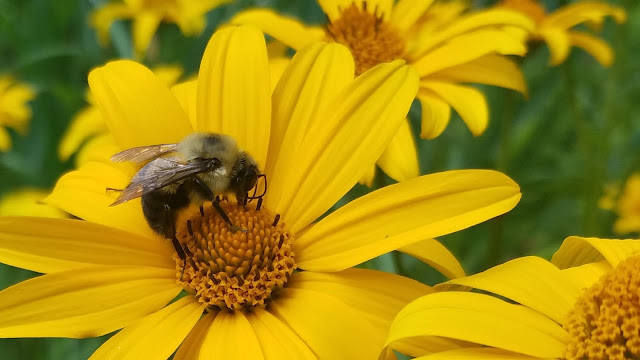Currently I have the incredible opportunity of working with a diverse group of people and as I get long in the tooth calling # a pound sign is becoming obsolete. Matter of fact if I mistakenly slip up and say "pound sign" most heads swivel around like Linda Blair's in The Exorcist, (cue creepy Exorcist music here) staring at me with blank, zombie-like stares, not able to comprehend what I just meant. Fellow Gen Xers in the room often jump in with, "Oh, you mean the hashtag" in an effort to help me not look like a BOF (Boring Old Fart). As soon as that's said there's a collective sign of relief, like what I had spoken was utter blasphemy. There are quick whispers that rise up like the swell of a wave, "Poor soul, she knows not what she speaks" and "Wow, I can't believe that came out of her mouth, where's the soap?" At this point my face is beet red and I try valiantly not to stutter trying to bring the meeting back to order. Eventually the commotion dies down, but for the remainder of the meeting I'm plagued with sympathetic faces or those who can't even look me in the eyes.
As I've just bared my embarrassing moments to you, allow me to get nerdy for just a second. Let's talk #History... Its origins are from libra pondo, ℔. If it's used before something (e.g. #2 pencil) it's read as "number two pencil." If it's after something (e.g. 5#) it's read as "five pounds" to indicate weight. Keep in mind it's not to be confused with the Chinese character 井, the musical sharp sign (♯), the techie viewdata square (⌗), the Latin numero sign (№), the scientific equal and parallel to symbol (⋕) or the game Tic-tac-toe's grid. The subtle difference is the #hashtag has 2 parallel, horizontal lines and 2 parallel, right-tilting, vertical lines, which I really wasn't aware of and have been writing a tic-tac-toe grid these past 40+ years (#HonestMistake). No wonder I had an onslaught of people who wanted to go tete-a-tete with me in this fast-paced, riveting game. I just thought they really, really liked tic-tac-toe (#WhoKnew).
Ok, coming back to the present, you may be wondering what's it's used for now? Why is it plastered all over my computer, Facebook, on billboards and on TV? And how can I talk about it without sounding like an old fart? Those of you in Generation Y, Millennials, or Generation Z I'm thinking you already understand what I'm about to write, but feel free to keep reading, I'll try and add some humor. So, the # is used to take advantage of metadata or in non-IT terms, it's data that provides information about other data. Why the heck would anyone want data about data? There is so much of everything imaginable out there, so much in fact our computers and especially our brains can't process it all. Yet we still need the ability to find what we need, easily & quickly. That's where metadata comes in. Companies want to sell products, advertisers want to pinpoint their targeted demographics, people like us just want to find funny memes or the dumb things politicians say to post on Facebook and Twitter. This is where the # makes it easy, grouping data about data together for us so all we have to do is click and voila, all the posts, memes, comments, pics we could ever want about the topic is at our fingertips. What I've found through my scientific research is the best place to use the # is Twitter, hands down. Followed by Facebook, Instagram and Snapchat. Many people specifically find popular # topics and add them to their post so it will be found more frequently, nothing like free advertising right? Others will #CreateTheirOwn in hopes it sparks a revolution in the #Twitterverse. For me, I'm still trying to figure out when to create my own versus piggy-backing on an already created, trending one. But that my friends is another topic for another day.
With all this being said, if you take one thing away from this scintillating #hashtag discussion it's this, unless you want to be looked at like you have two heads... DON'T say pound sign! And when you want to sound "normal" or easily understood by the masses it goes like this...
#NotAnOldFart is spoken "hashtag not an old fart." You're welcome.










